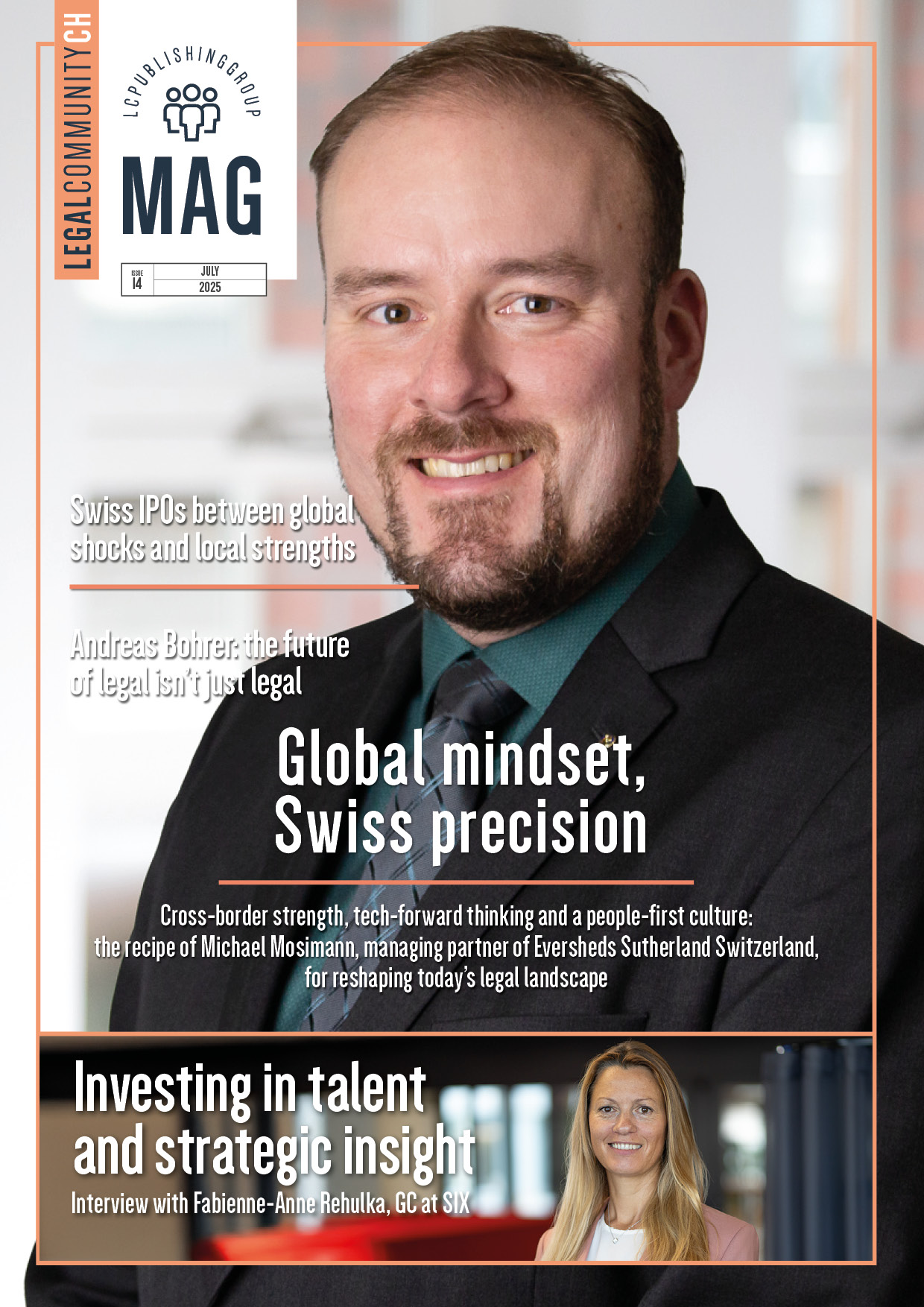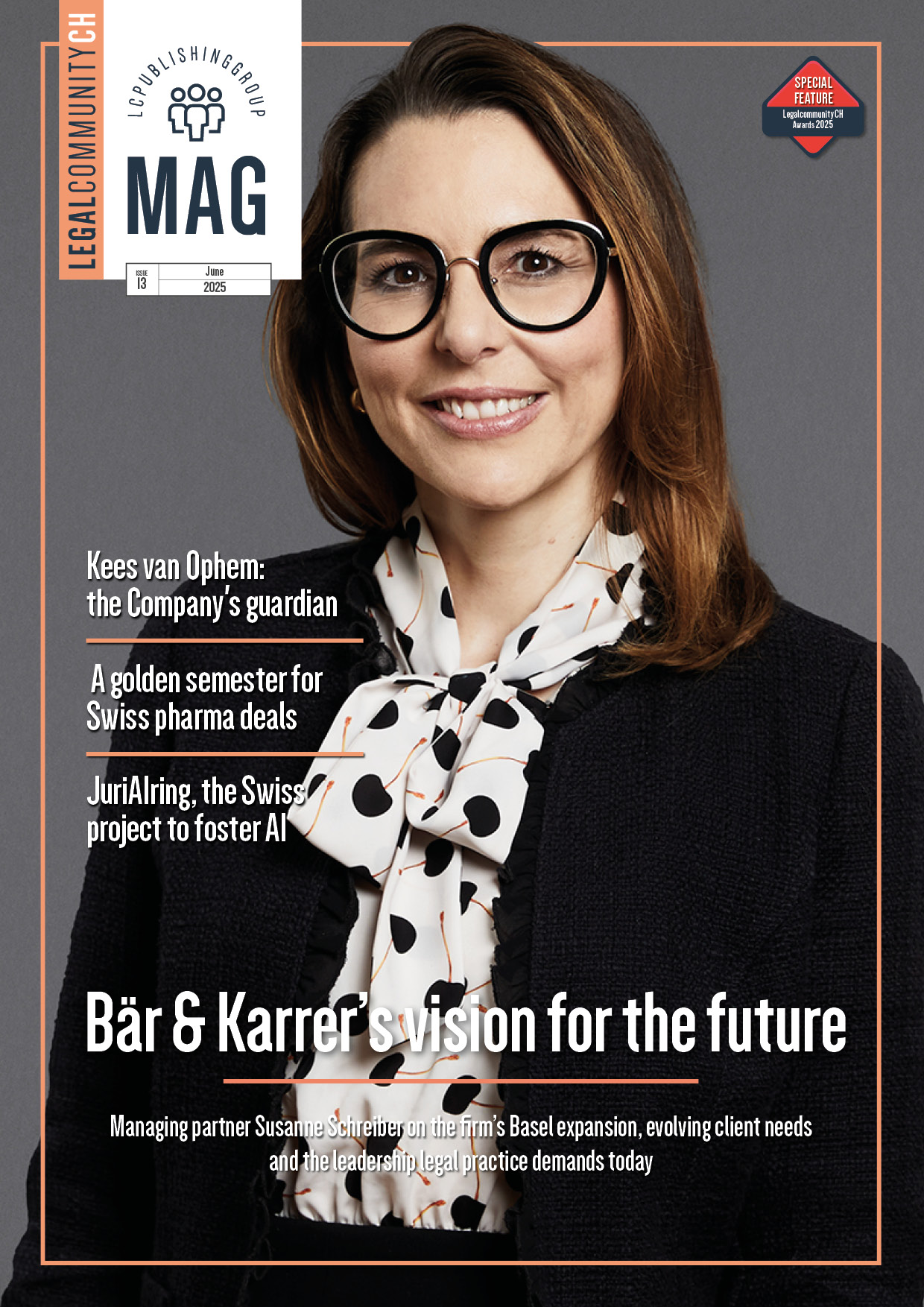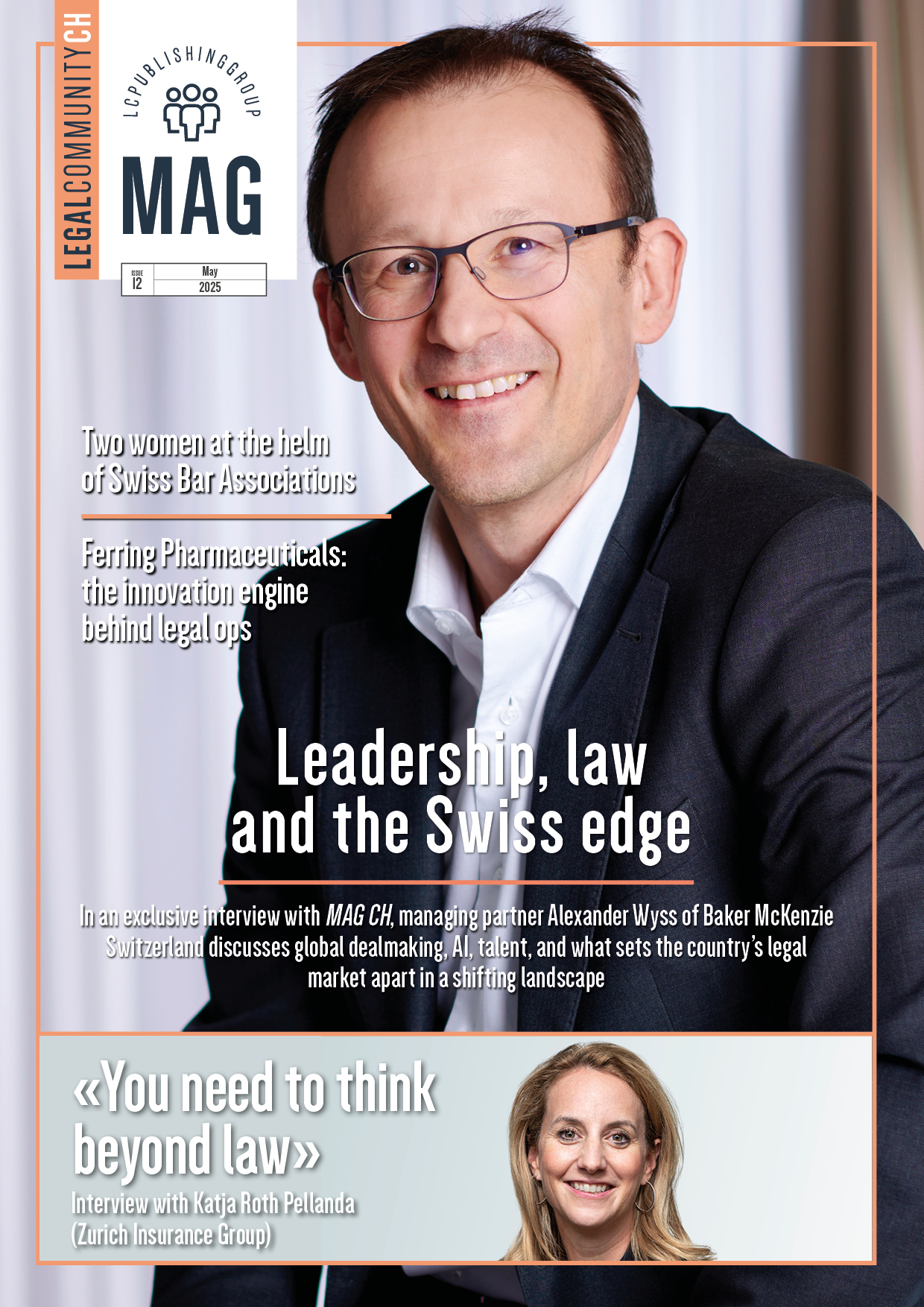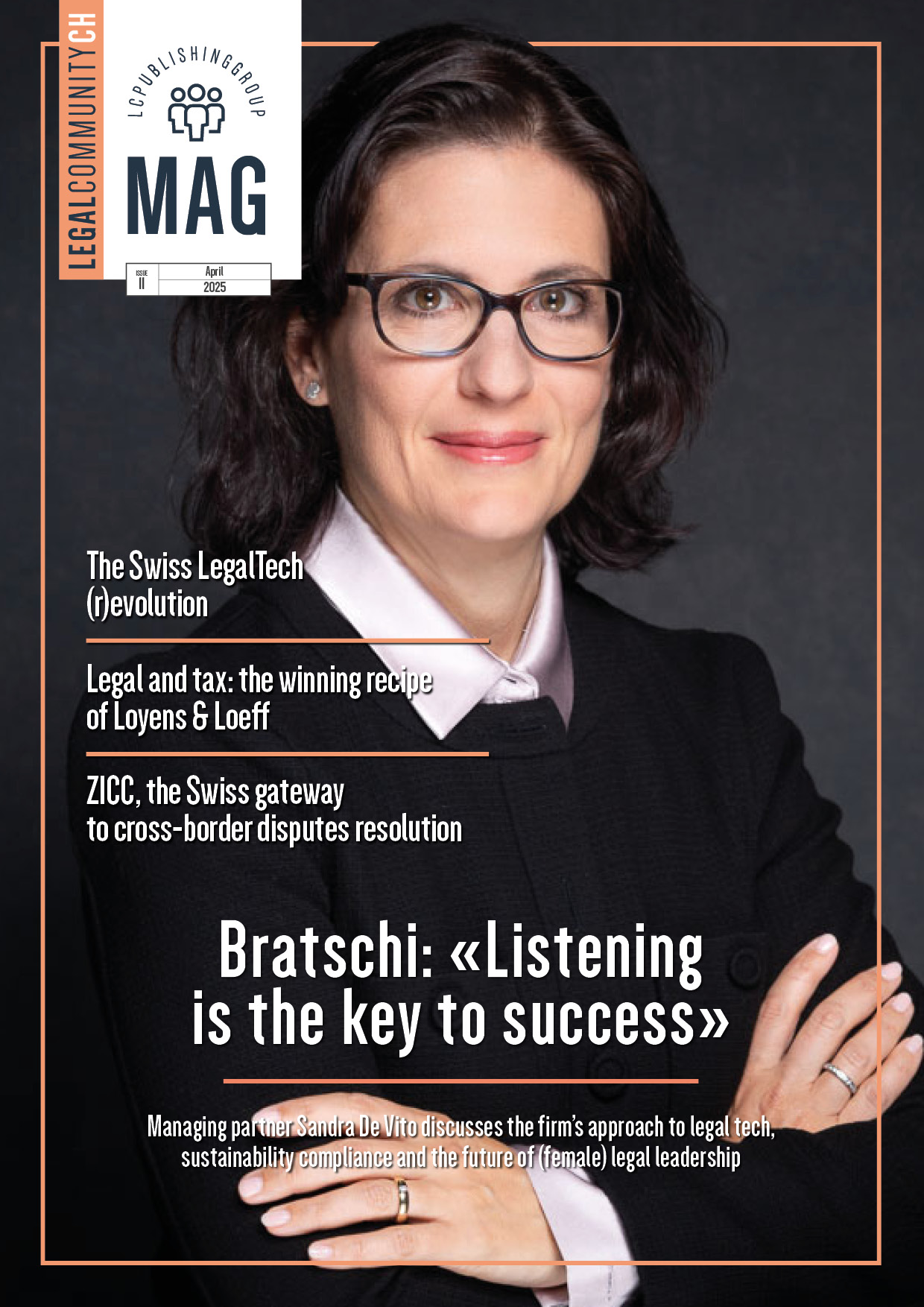He works in an outpost, but help is only a phone call away
Mohamed Elmogy, general counsel of Siemens in Egypt, is part of a matrixed department that pulls all legal work together
WHAT IS IT LIKE to work as a lawyer in an outpost of a giant multinational? If you ask Mohamed Elmogy, he’ll tell you that it’s not a lonely job at all. He heads the legal operation of the German company Siemens AG in Egypt, with additional responsibilities in neighboring Libya (and now, further away in Iraq). But because of the megacompany’s organization, Elmogy knows that he can easily call upon the resources of the whole company. The legal department doesn’t just serve the local operation, but is part of the entire enterprise, and Elmogy is a regular commuter to regional headquarters in Abu Dhabi.
MAG spoke to Elmogy before the celebration of Legalcommunity Corporate Awards got under way in Milan earlier this month. We talked about how Siemens deploys its legal talent, compliance, and what Elmogy looks for when he hires an in-house lawyer in an extremely tight market.
You are at Siemens–do you have your own legal department there?
At Siemens, the legal department is a matrix organization. So we don’t have reporting to the business. Everyone reports eventually to the general counsel of Siemens. In Egypt, I report to the
General counsel of East Africa, Asia, the Middle East. I have a team of 10 lawyers—two senior lawyers, three compliance persons, five contract persons, and a personal assistant.
Compliance is under the legal department?
Under the legal department. That way it goes up to the general counsel.
Is Siemens under a court agreement regarding compliance?
I remember that 2006 case [editor’s note, a bribery scandal involving Siemens]. Back then we didn’t have many compliance officers. But since 2006, after that event, we evolved tremendously. We have an extremely robust compliance program in place and a large number of compliance officers around the globe.
When did you start there?
April 2018, so more than one year. The role is already expanding in such a short period of time. I’m charged with Egypt and Libya, and now taking over Iraq, with new projects there. I’ll be in Beirut and Dubai soon.
Have you been an in-house lawyer for much of your career?
Yes. I’ve been an in-house lawyer for about 15 years. I was at Sandoz Group, part of Novartis. And I took over northeast Africa, based out of Cairo.
Did you ever work in private practice, at a firm?
I was lucky enough to spend the first nine years of my career in private practice. And I was fortunate that my father is a lawyer; he owns a boutique law firm in Egypt. And this is where I started training, then having my own team and clients. It was tough, crazy, but I had a large team. Those nine years gave me a proper background and skills.
Did you go in-house deliberately, or did it just happen? Do you like it?
I never thought about it from the start. But I can say that it was a tough decision at the time. I had my own clients, quite a large team. And one client said to me, why don’t you join us, in-house? And that’s how it started.
Did your father say anything about it?
No. By this time I was really independent. My younger brother is in-house too, with Vodaphone.
Do you choose your own law firms?
It’s a tricky question. My approach for anywhere I work is quality, quality, and quality. So I’m looking for the deliverables of the law firm I hire. And definitely, the firm should be specialized in what I’m looking for. We use two firms for much of our outside work: the German firm Amereller, and a local Egyptian firm.
What’s your relationship with headquarters? How often do you interact and use their resources?
It’s similar to other companies, but more detailed. We have a legal project team from headquarters in Germany who are looking for any new projects that they can place anywhere in the world. On a daily basis I interact with our legal department in Germany. On a weekly basis I have at least one long visit to our regional office in Abu Dhabi. So we’re all working together. I use the litigation team even if it’s in Libya, or Egypt, and I let them know, I keep them in the loop. If there’s a project that fits, we’re using the team. It’s always collaborative.
On a daily basis I interact with our legal department in Germany. On a weekly basis I have at least one long visit to our regional office in Abu Dhabi.
Do you look for specific qualities when you hire someone? Are you looking for a lawyer’s lawyer, or people who are more generalist?
It’s a dilemma for us. The market for in-house counsel in Egypt is quite tough. And talent is rare. So when I’m looking for our team, I’m always looking for someone who’s smart, who can analyze. Who’s able to learn—that’s the most important element. I will be happy to bring in someone who is an authentically good lawyer. But you need someone who will navigate with the business properly. I need someone who’s politically smart, someone who will make the business side understand that we are backing them up. However we will not forget that we are lawyers. This is the dilemma.
If someone who knows how to be a good lawyer and prevent the business from mistakes, but also lets them know we’re working with them, it’s a good combination.
How many years of experience are you looking for?
It’s all according to the role. For a senior lawyer, we’re looking at seven to 10 years of experience. For a general counsel, at least 15 years are required. And for a junior lawyer, two to three years. Even just out of school. I have an opening now for a fresh grad, someone we can invest in and shape.
The market is hard, the right kind of lawyer is rare. There aren’t enough in-house lawyers in the market. Accordingly, whoever is good at a job, we’ll prefer to retain.
What language do you speak in the office?
A mixture of English and Arabic. Our business communication is in English, but in the office between ourselves, it’s Arabic.
Is there one thing that worries you about the role of in-house counsel, one issue that preoccupies you?
Finding and retaining talent. The market is hard, the right kind of lawyer is rare. There aren’t enough in-house lawyers in the market. Accordingly, whoever is good at a job, we’ll prefer to retain.
















